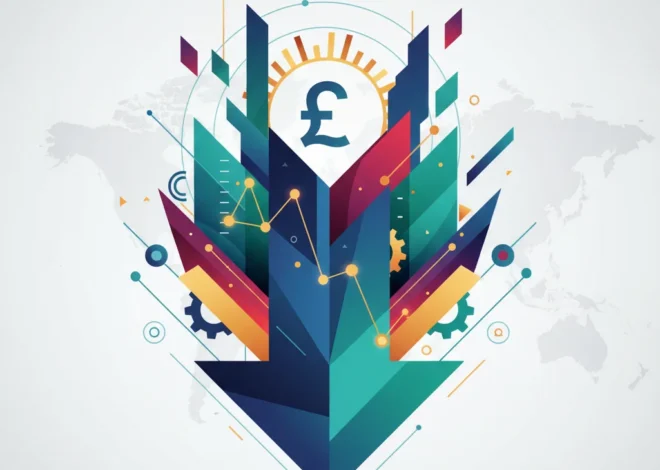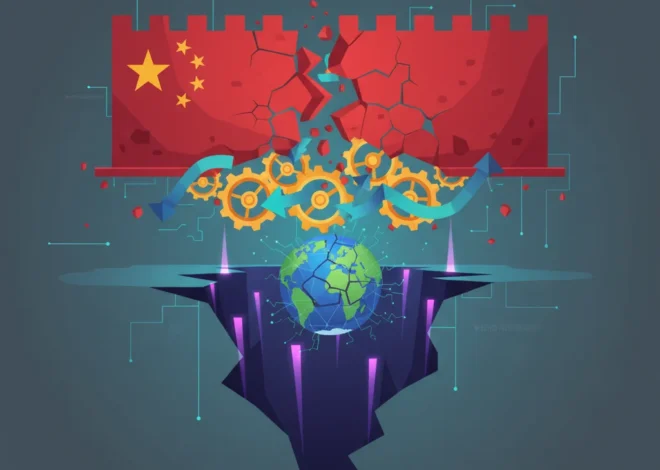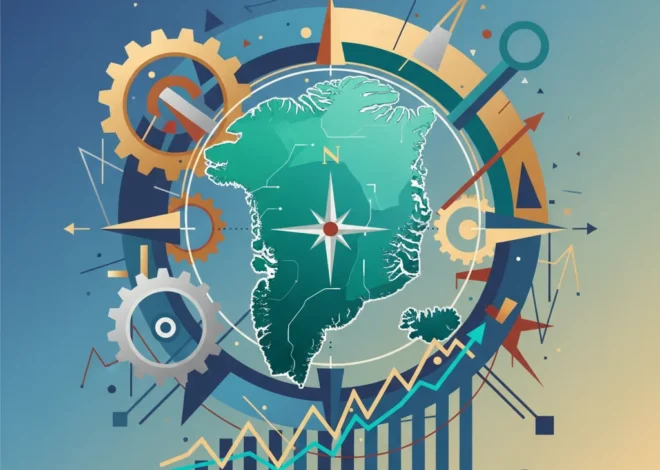
Beyond the Pitch: What a Football Match Teaches Investors About Geopolitical Risk
In the world of high-stakes finance and investing, critical lessons can emerge from the most unexpected places. While analysts pore over earnings reports and central bank statements, a recent decision from the world of European football offers a profound and timely masterclass in risk management, intangible asset valuation, and the escalating impact of geopolitics on every facet of the global economy. Israeli football club Maccabi Tel Aviv announced that its fans will not be attending an upcoming European Conference League match against Aston Villa in the UK, citing safety concerns. The club is voluntarily forgoing its ticket allocation, a decision that holds even if UK authorities were to reverse a ban on the team’s supporters.
On the surface, this is a story about sports and security. But look closer, and you’ll see a sophisticated corporate strategy in action. Maccabi Tel Aviv, acting not just as a sports team but as a prudent organization, made a calculated decision to prioritize its most valuable asset: its people and its brand reputation. This move, which sacrifices short-term revenue and on-the-ground support, is a powerful real-world case study for any investor, CEO, or financial professional navigating today’s volatile landscape. It demonstrates a crucial principle: in an era of heightened geopolitical tension, the most astute financial decisions are often those that protect against catastrophic downside risk, even at the expense of immediate upside gain.
The Unseen Balance Sheet: Valuing Intangible Assets
Every organization has a balance sheet with tangible assets like cash, property, and inventory. But the most valuable assets are often intangible: brand reputation, customer loyalty, and stakeholder trust. Maccabi Tel Aviv’s decision is a textbook example of protecting these unseen, yet priceless, assets. The potential revenue from a few thousand tickets is a quantifiable, short-term gain. The potential cost of a security incident involving their fans, however, is unquantifiably large and long-lasting.
This calculus is directly applicable to the corporate world. Consider a company deciding whether to continue operations in a politically unstable region. The quarterly revenue from that market is a known figure. The potential for supply chain disruption, asset seizure, or reputational damage from being associated with a volatile regime is a far more complex and dangerous variable. A study on the value of corporate reputation found that it can account for more than 35% of a company’s market capitalization. The financial fallout from a single reputational crisis can erase billions in shareholder value overnight.
Maccabi’s leadership understood that the safety and well-being of their supporters (their core stakeholders) are inextricably linked to the long-term health of their brand. By taking proactive, decisive action, they fortified that brand, demonstrating a duty of care that builds profound loyalty. For investors, this highlights the importance of scrutinizing a company’s approach to risk. A management team that only chases quarterly earnings while ignoring simmering external threats is a team that is exposing its shareholders to significant, unpriced risk.
Beyond the Headlines: A Deep Dive into the New U.S.-China Trade Spat and Your Investment Strategy
Geopolitical Risk: From Background Noise to Market Driver
For decades, many in the financial world treated geopolitics as a secondary factor—interesting background noise that rarely had a direct, sustained impact on the stock market. That era is definitively over. Today, geopolitical risk is a primary driver of market volatility, corporate strategy, and the global economy.
The decision by an Israeli football club in the UK is a microcosm of this new reality. It reflects a world where conflicts and tensions in one region have immediate and tangible consequences thousands of miles away. Investors and business leaders must now operate with a constant awareness of this interconnectedness. A trade dispute can cripple a technology sector, a regional conflict can send energy prices soaring, and social unrest can disrupt critical supply chains.
To better understand this dynamic, consider the direct market impacts of recent geopolitical events.
| Geopolitical Event | Affected Sector / Asset | Observed Financial Impact |
|---|---|---|
| Russia-Ukraine Conflict (2022) | Energy, Agriculture, Defense | Surge in global oil, gas, and wheat prices. Significant stock price increases for defense contractors. |
| US-China Trade Tensions (2018-Present) | Semiconductors, Technology, Manufacturing | Supply chain disruptions, increased operational costs, and stock volatility for multinational tech firms. |
| Brexit (2016-2020) | UK Banking, EU Trade, Pound Sterling | Prolonged uncertainty, depreciation of the pound, and forced relocation of financial services from London. |
| Red Sea Shipping Disruptions (2023-Present) | Global Logistics, Retail, Commodities | Increased shipping costs and delivery times, impacting inflation and corporate profit margins. |
This table illustrates that geopolitical events are not black swan occurrences; they are a consistent feature of the modern investment landscape. A robust investment thesis in the 21st century requires a geopolitical thesis. Companies that lack a sophisticated understanding of these risks are unprepared for the realities of the modern global economy. As highlighted by a report from McKinsey, executives now rank geopolitical instability as one of the top threats to global economic growth, a significant shift from just a decade ago.
Beyond the Box: Unpacking Tritax's £1 Billion Wager on the Future of Logistics
The New Corporate Playbook: Proactive Risk Mitigation
So, how can businesses and investors translate the lesson from Maccabi Tel Aviv into an actionable strategy? It requires moving from a reactive to a proactive stance on risk management.
1. Prioritize Scenario Planning
Maccabi Tel Aviv didn’t wait for an incident to occur. They analyzed the environment, anticipated potential negative outcomes, and acted to prevent them. Corporations must do the same. This involves “war-gaming” potential geopolitical scenarios. What happens to our supply chain if tensions escalate in the South China Sea? What is our contingency plan for a major cyber-attack originating from a hostile state actor? Companies that engage in rigorous scenario planning are better equipped to respond swiftly and effectively when a crisis hits, preserving shareholder value in the process.
2. Embrace Stakeholder Capitalism
The decision also reflects a shift from pure shareholder primacy to a broader stakeholder model. By prioritizing the safety of its fans (stakeholders) over immediate ticket revenue (a shareholder-like interest), the club built long-term brand equity. This aligns perfectly with the principles of ESG (Environmental, Social, and Governance) investing, which argues that companies that manage their relationships with employees, customers, and communities effectively are more resilient and profitable in the long run. A focus on stakeholder well-being is not just a matter of ethics; it is a sophisticated financial strategy for building a durable, sustainable enterprise.
3. Leverage Technology for Foresight
While human judgment was key in Maccabi’s decision, technology is becoming indispensable in managing these complex risks. Modern fintech platforms and AI-driven analytics can monitor global events in real-time, providing early warnings of potential disruptions. Tools can scrape news sources, analyze social media sentiment, and even use satellite imagery to detect supply chain anomalies.
Furthermore, technologies like blockchain are being explored to enhance transparency and security in volatile environments. A secure, decentralized ledger can track goods through a high-risk supply chain or ensure the integrity of cross-border financial transactions, reducing the potential for fraud or interference. While not a panacea, this application of financial technology represents a significant leap forward from traditional risk assessment methods.
| Methodology | Description | Strengths | Weaknesses |
|---|---|---|---|
| Traditional (Static Reports) | Relies on periodic reports from analysts and historical data. | Provides deep, expert context. | Often outdated; slow to react to fast-moving events. |
| Tech-Driven (AI/Big Data) | Uses real-time data streams, sentiment analysis, and predictive modeling. | Provides early warnings; identifies patterns invisible to humans. | Can be prone to “noise”; may lack nuanced, qualitative understanding. |
| Hybrid Approach | Combines AI-driven data analysis with expert human oversight and judgment. | Best of both worlds: data-informed and context-aware. | Requires significant investment in both technology and talent. |
The optimal strategy for a modern enterprise is the hybrid approach, mirroring the Maccabi decision: leveraging all available information and then applying seasoned human judgment to make a final, values-driven call.
Market Crossroads: 5 Critical Signals for Investors to Watch This Week
Conclusion: The Universal Currency of Prudence
The story of an empty away-end at a football stadium in Birmingham is, unexpectedly, a crucial lesson for the world of finance, trading, and global business. It teaches us that the true measure of an organization’s strength is not its ability to maximize every short-term opportunity, but its wisdom in navigating long-term risks. It underscores that in an interconnected and often turbulent world, a proactive defense is the best offense.
For investors, the key takeaway is to look beyond the numbers on a quarterly report and assess how well a company’s leadership understands and prepares for the complex geopolitical landscape. For business leaders, it is a call to action: to build resilient organizations that prioritize their people, protect their reputation, and have the courage to make difficult short-term sacrifices for the sake of long-term stability. In the final analysis, foresight, prudence, and a deep sense of responsibility are not just corporate virtues; they are the most valuable assets on any balance sheet.


